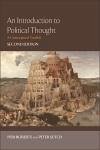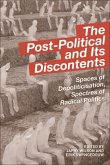Develops a coherent theory of nonviolent political action in the context of Western political theory. From Mahatma Gandhi and Martin Luther King to toppled communist regimes in Eastern Europe and pro-democracy movements in Serbia, Georgia and Ukraine, nonviolent action has played a significant role in achieving social and political change in the last century. The Arab Spring revolutions, particularly those in Tunisia and Egypt, and the Occupy movement in the US and UK demonstrate that nonviolence continues to be a vital feature of many campaigns for democracy, human rights and social justice.Ian Atack identifies the contribution of nonviolence to political theory through connecting central characteristics of nonviolent action to fundamental debates about the role of power and violence in politics. This in turn provides a platform for going beyond historical and strategic accounts of nonviolence to a deeper understanding of its transformative potential.Key Features: Explores the philosophical presuppositions behind nonviolent political actionExamines the tensions between nonviolence and pacifism in international politicsUses Gramsci and Foucault to critically analyse consent as the basis of political powerDistinguishes between civil resistance and transformative nonviolence
Dieser Download kann aus rechtlichen Gründen nur mit Rechnungsadresse in A, B, BG, CY, CZ, D, DK, EW, E, FIN, F, GR, HR, H, IRL, I, LT, L, LR, M, NL, PL, P, R, S, SLO, SK ausgeliefert werden.









